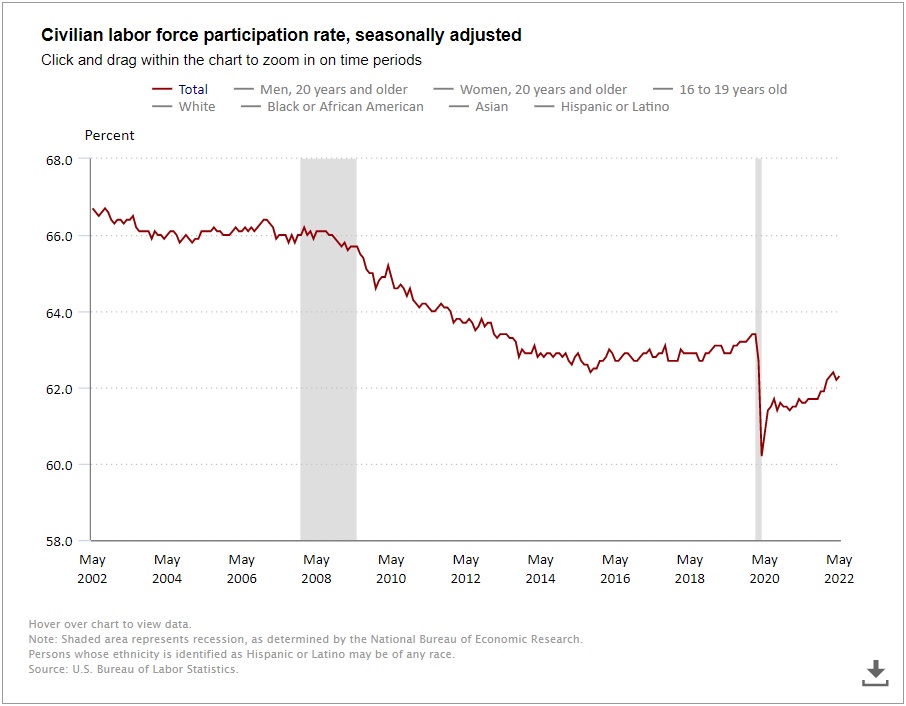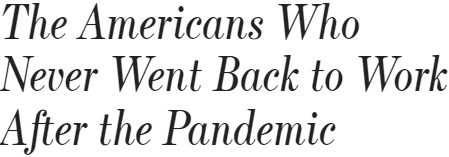Let’s revisit the issues of Bidenomics.
Previous editions of this series have focused on Biden’s dismal record with regards to subsidies, inflation, protectionism, household income, fiscal policy, and red tape.
The assessment has not been positive, which shouldn’t be very surprising since Biden is basically a slow-motion version of Bernie Sanders.
Today, we’re going to look at Biden’s record on jobs…and that’s not going to improve the assessment.
The problem is employment rather than unemployment.
In a column for the Wall Street Journal, Nicholas Eberstadt writes about the millions of Americans who have disappeared from the labor force.
Never has work been so readily available in modern America; never have so many been uninterested in taking it. …For every unemployed person in the U.S. today, there are nearly two open jobs, and the labor shortage affects every region of the country. …Why the bizarre imbalance between the demand for work and the supply of it? One critical piece of the puzzle was the policy response to the pandemic. …Washington pulled out all the monetary and fiscal stops….created disincentives for work as never before. …In 2020 and 2021, a windfall of more than $2.5 trillion in extra savings was bestowed by Washington on private households through borrowed public funds. …With pre-Covid rates of workforce participation, almost three million more men and women would be in our labor force today.
To be fair, bad pandemic policies began with Trump.
But Biden promised changes yet has delivered more of the same.
Why does this matter?
It’s not just a numbers issue. When people drop out of the labor force, that translates into a weakening of America’s societal capital.
Mr. Eberstadt explains.
The signs that growing numbers of citizens are ambivalent about working shouldn’t be ignored. Success through work, no matter one’s station, is a key to self-esteem, independence and belonging. A can-do, pro-work ethos has served our nation well. America’s future will depend in no small part on how—and whether—her people choose to work.
Thanks to a stronger work ethic and spirit of self reliance, the United States historically has had an advantage over other nations.
But it’s increasingly difficult to feel optimistic about the long-run outlook for America’s societal capital.
Ironically, Joe Biden seemed to understand this in the not-too-distant past.


